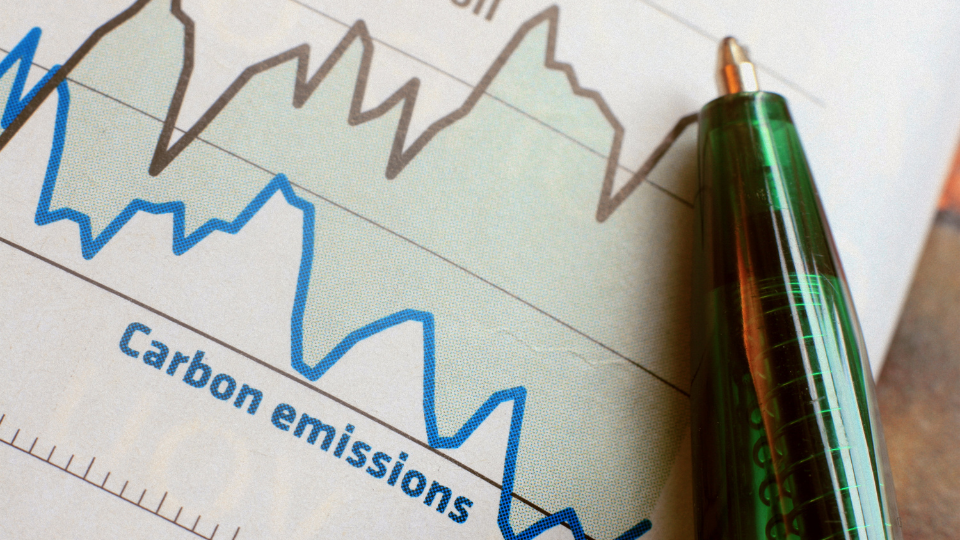Why is ESG reporting more crucial than ever
ESG reporting has been around since the early 2000s, but its prominence has skyrocketed recently. You might be wondering the reason for this sudden surge in interest.
ESG reporting is now legally mandated in 40 countries, including the UK, many EU member states, North America, Australia, Japan, and soon South Africa.
Yes, The pressure is on! These nations urge their suppliers to provide ESG and GHG reports before finalizing deals to ensure compliance with their sustainability standards. Therefore, manufacturers and business organizations are now facing countless challenges including sales rejections when they are exporting their products to these countries.

ESG reporting is not just a "nice to have," requirement anymore. It has become a need for business organizations when exporting goods for international buyers. But a company preparing these reports face tremendous hurdles since the process is not a task that can be done overnight!
What is ESG Reporting?
ESG reporting is a type of corporate disclosure that covers an organization's work, efforts, risks and promises under these 3 key sections.
- Environmental
- Social
- Governance
Task Allocation:
Let’s dig in a little deeper to see what they actually cover.
Environmental Impact
Environmental Impact refers to how organizations are effectively utilizing energy and managing their environmental impacts as responsible businesses of the world.
- Reducing carbon emissions and pollution
- Minimizing climate change impacts
- Usage of renewable energy
- Minimizing waste disposal
- Preventing resource depletion
Examples:
Social Responsibility
Social Responsibility primarily covers how organizations nurture their people and their organizational culture, and what impact do they have on the community.
- Labor practices
- Labor practices
- Ensuring human rights
- Community engagement
- Preventing resource depletion
- Supply Chain Management
Examples:
Corporate Governance
Corporate governance is concerned with how organizations are managed and led, ensuring that leaders are responsible for their actions.
- Board composition and elections
- Executive compensation
- Risk management
- Anti-corruption practices
- Independent directors
Examples:
Why is ESG Reporting important to an organization?
We live in an era where sustainability is not just a buzzword but a critical business weapon that aids organization’s growth in many ways.
ESG reporting allows you to share your organization's ESG narrative through data, enhance your brand reputation, and supply investors with the information they need to make informed decisions.
Consumers examine ESG reports to determine if their spending aligns with a company's values and practices since they feel responsible for their spending and consumption.

Stakeholders and investors are keen on a company’s ESG report to assess that company's sustainability practices, ethical impact, and overall risk profile before approaching any investment.
International buyers particularly look into manufacturers with good ESG reports so that they are more comfortable when sourcing from them.
ESG reporting aids a business to skyrocket their overall performance, regulatory compliance, goal tracking and risk management, transparency and visibility.
What are ESG scores?
Simply an ESG score is an impartial assessment of a company, fund, or security's performance in relation to Environmental, Social, and Governance (ESG) factors.
These scores typically range from 0 to 100. A score of less than 50 is considered relatively poor and more than 70 is considered good.
These scores are crucial for socially responsible investors aiming to invest in companies with robust ethical and sustainability practices, as they offer insight into a company’s long-term performance and resilience.
Some of the Most Relevant ESG Rating Agencies & Data Providers are Bloomberg ESG Data, Dow Jones Sustainability Indexes, MSCI ESG Research and S&P Global.
Microsoft has achieved an impressive ESG score of 72.76, while Applied Materials and Woodward have earned notable scores of 71.71 and 71.69, respectively which are among the highest ESG scores recorded up-to-date.

What is GHG (GreenHouse Gas) Reporting?
GHG Reporting is the process of documenting the amount of GHGs such as Co2, CH4, CO etc. emitted by a business, organization or country. The GHGRP (Green House Gas Reporting Program) mandates the submission of GHG) data and related information from major GHG emission sources, fuel and industrial gas suppliers, as well as CO2 injection sites within the United States.

What are included in a GHG report?
The information included in a GHG report is grouped into scopes. These are defined as:
Scope 1 - Direct GHG emissionsThese are emissions from sources owned or controlled by an organization.
- Business vehicles
- Business generators
- Boiler combustion
These emissions originate from energy consumed but provided by another company, such as energy supplied to a building or an outstation.
- Electricity
- Heat
- Steam
These emissions arise from activities or assets that the organization does not directly own but that affect its daily operations.
Business travel via public transport excluding international air and rail travel
e.g. taxis or buses.
Work completed on behalf of the company by a supplier.
Emissions associated with business products or services.
What are the benefits of GHG Reporting?
Saving money massively due to minimizing unnecessary fuel wastage and being mindful of the vehicles used in the business.
Organization’s transparency and visibility on GHG emissions will enhance customer, investor and stakeholder trust and interest towards the business.
Completing an organization’s fair share in protecting and conserving the environment for our future generations establishes an organization’s sustainability standards furthermore.
You might not have mastered your organization’s ESG Reports and GHG Reports yet, but congratulations!, just the notion that you have been reading this blog until now is a sign that you’re on the right path towards your company’s sustainability goals.
Now you might be wondering how KingslakeBlue aids towards an organization’s sustainability standards. KingslakeBlue Transport Management System is a solution to optimize employee transportation, offered to all manufacturing industries including apparel and corporate organizations.
Our KingslakeBlue TMS solution has invaluable features such as “Visual Planner” that suggests you the quickest and the most fuel-efficient route. Ability to manage thousands of incoming transportation requests online allows the system to be completely paperless. Subscription based billing is a Pay As You Use system that is 100% cloud based that provides you access to a hassle-free environment without the burden of hardware cost, licensing hosting and maintenance.
These features will help reduce fuel consumption, expenses, and carbon emissions, ultimately enhancing the efficiency and productivity of your company's operations.
KingslakeBlue TMS includes a carbon emission reporting that monitors your organization's carbon footprint. By analyzing these reports, you can gain valuable insights into how to adjust current methodologies to improve your company’s sustainability standards.
Our team is eager to assist you in achieving your sustainability goals and optimizing your transportation management processes: Contact us
